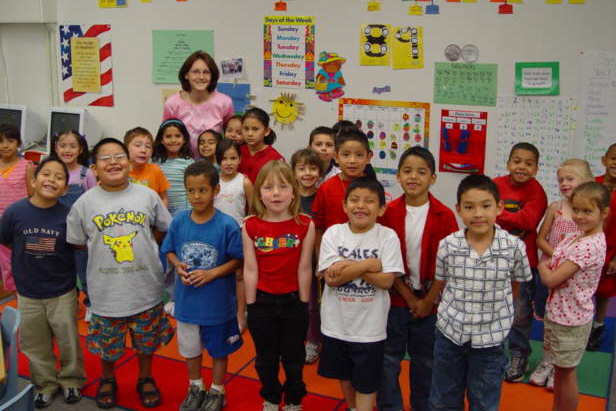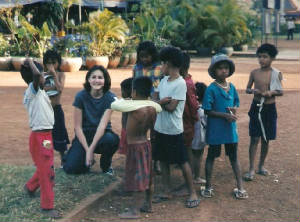|
Jill Martin's Online Portfolio |
|
|
Concentration Areas |
|||||||||||||||||||||||
|
Education Elementary Education, as studied through theory, looks at experimental pedagogy, administration and management in education,
the function of schools in society, the role of bilingual and multicultural education, etc. Recent experimentation in this
field includes inquiry about linguistics, socio-cultural perspectives, educational equity and social and cognitive development.
Education Courses Educational Psychology: This class covered
human behavior in educational situations, with particular emphasis on early childhood development. We studied the individual
differences, factors affecting learning, behavioral and cognitive learning, motivation, testing, and assessment. Understanding the Culturally Diverse Child: This class studied the cultural and linguistic diversity in American education, including education equity, pluralism,
learning styles, and roles of schools in a multiethnic society. We did minority group case studies and also presented on cultures
from across the globe. Culture and Schooling: This was an introductory
class where we learned an overview of the cultural, social, and political environment in which formal schooling takes place
in the Foundations of Multicultural Education: In this class we examined
social, historical, philosophical, and legal issues affecting racially, linguistically, culturally, and exceptionally diverse
students in U.S. schools. Intro to Education: This class introduced us as future teachers,
to education as an instrument
in the development of the individual and society and its significance as an American institution. Intro to the Exceptional Child: We studied
issues related to the schooling of children, including gifted, mildly handicapped, severely handicapped, and the bilingual/multicultural
exceptional child Child Development Theory
and Practice: In this class we focused on the cognitive, socical and pysical development of children from pre-natal up
until the third grade. Literacy and Bi-literacy
development: Taken from Northern Arizona State University's bilingual education program, we studied the psychology
behind language learning as well as the appitude of children to learn multiple languages.
|
...is the study of religion from an academic perspective. I learned the history, practice and teachings of the major
religions, including eastern and western streams. I also learned about the nature of religion including the social, cultural
philosophical and psychological issues related to religion. Recently religious historians have been looking at comparative
religion in search for universal truths. New perspectives are being discovered allowing religion to have a fluid meaning. Researchers are also studying how religion as experienced by individuals fabricates
the language, action and thoughts of specific traditions. Particularly important to me is the exciting area recently at the forefront of religious studies,
which is peace studies. Interdisciplinarians have combined justice studies, religious studies, psychology, geography,
history, cultural anthropology, among other disciplines creating Religion and Conflict studies.
Religious Studies
Courses Ritual Myth and Symbol:
This course introduced us to various world religions, the sacred and the profane and mulitple texts that are
deemed important to the study of religion. Religion and Food:
This elective course involved the study of the significance of food to various religions with an emphasis on Christianity,
Hinduism, Judaism and Buddhism. Analysis of the importance of food in rituals, the practice of denying nurishment as a path
to enlightenment and the controversy around sacrament and Christ, are a few examples of the material study in the class.
The class also included an extensive research paper (25 pages) on a topic of choice. Asian Religious Traditions:
This course included an in depth study of three eastern religions including Hinduism, Jainism and Buddhism. Religion, Violence
and Conflict: This highly interactive course centered around the discussion of violence and religion in the contempory
world. Students learned about religion as a vehicle for promoting violence and dehumanization of other religious and cultural
groups. Case studies were completed by each student as well as an in depth look at the trials conducted by the Peace and Reconciliation
commision in South Africa. Islam and Islamic Societies
in Women & Goddesses
in
|
||||||||||||||||||||||
|
|
|||||||||||||||||||||||


